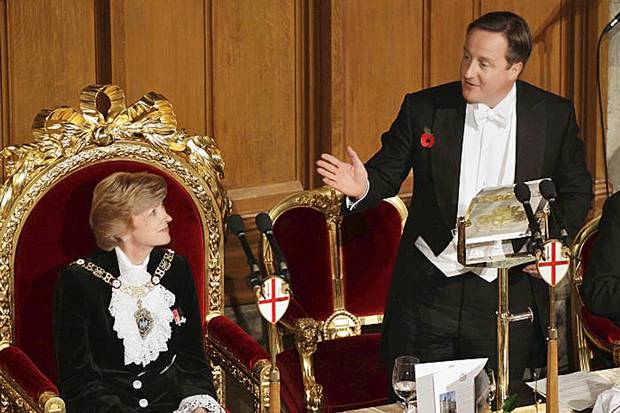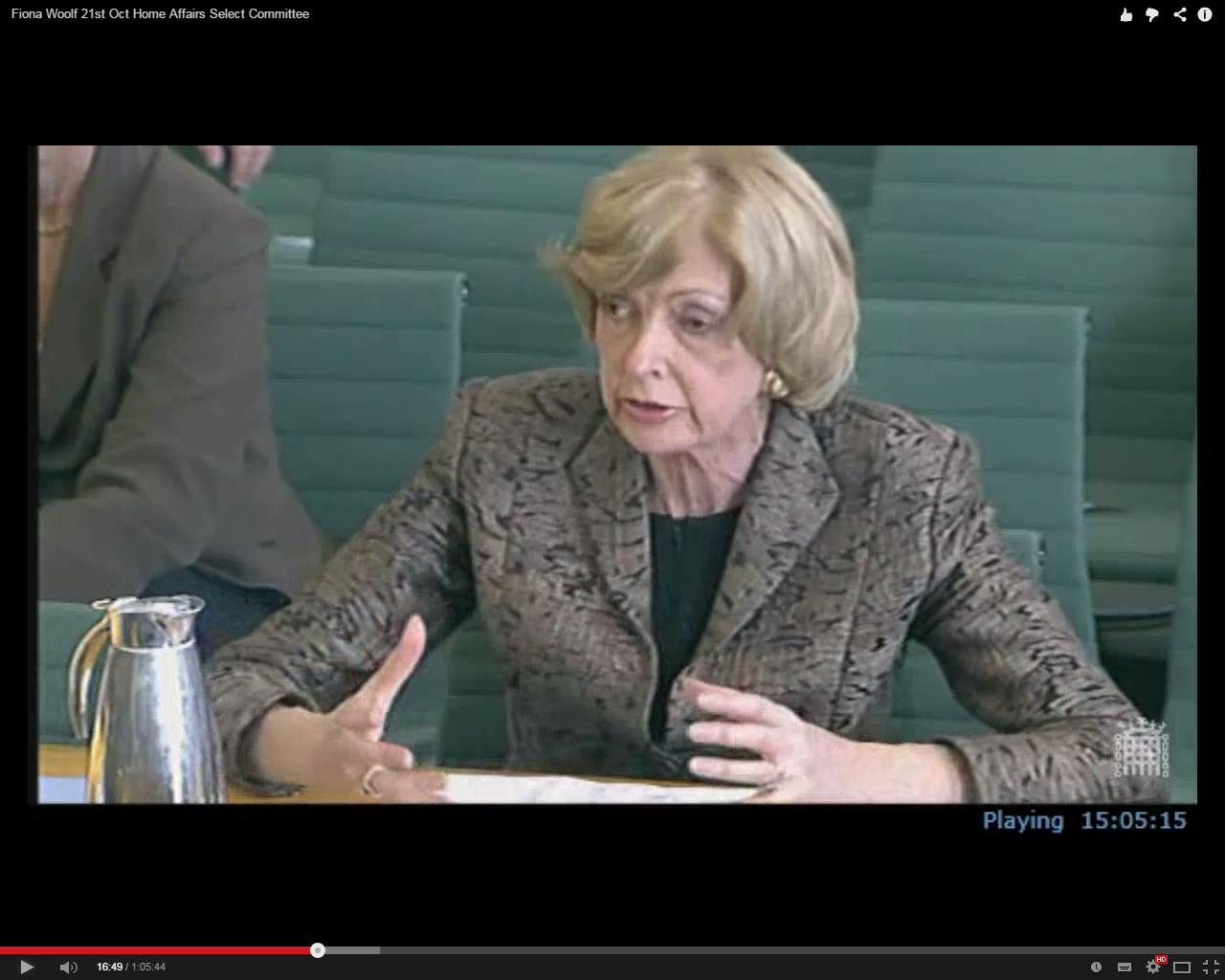CSA Inquiry – will chair be shown the door?
Fiona Woolf, who has been appointed to chair the government inquiry into historic child sex abuse (CSA), recently appeared before the Home Affairs Select Committee of the House of Commons, effectively to answer the charge that she was not a suitable or proper person to undertake the role. She was appointed after the resignation of… Continue reading about CSA Inquiry – will chair be shown the door?
Fiona Woolf, who has been appointed to chair the government inquiry into historic child sex abuse (CSA), recently appeared before the Home Affairs Select Committee of the House of Commons, effectively to answer the charge that she was not a suitable or proper person to undertake the role.
She was appointed after the resignation of the initial appointee, Lady Butler-Sloss, whose late brother, Sir Michael Havers had been Attorney General in Mrs Thatcher’s government, and might have been the subject of criticism in the inquiry (see Weekly Notes – 18 July).

The general impression being conjured up by all this talk of “establishment” dinner parties is of a Dickensian illustration by Phiz depicting a group of fat, well connected, self-satisfied people in a warm, candelabra-lit room, chewing and chortling round an antique table laden with gargantuan helpings of rich delicacies, while outside the window the huddled masses of poor, threadbarely attired victims, shivering in autumnal gusts of wind, look in with expressions of solemn misery and disappointment.
No doubt that pudding has been somewhat overegged – as have the allegations of Mrs Woolf’s friendship with senior political figures. To take an example, the Daily Mail, whose proprietor (and actually quite a few of whose writers) could not be more “establishment” if they tried, fulminated in a recent piece that Mrs Woolf’s claim of being an ordinary solicitor in private practice, rather than a pillar of a rotten establishment, was
one of the most outstanding examples of absurdity, self-delusion and sheer effrontery I have heard for a long time. Almost by definition, anyone who publicly denies belonging to the Establishment is almost certainly a member of the Establishment. If they weren’t, why would they need to deny it?
That “almost by definition” argument is certainly one of the choicest in pure Kafkaesque logic I’ve seen in a long time. It’s worthy of the FBI under Senator Joe McCarthy. And until now I thought the historian Dominic Sandbrook (educated at Malvern public school, Balliol College, Oxford, and Jesus College, Cambridge) who wrote the piece in the Mail, was a sensible author. The rest of his piece reads as though it was ghosted by Russell Grand.
A Moore balanced view
Interesting to compare the chorus of strident condemnation against Mrs Woolf with the few supportive soloists such as Charles Moore, in the Telegraph, who rightly takes issue with the lazy conspiracy theorism behind the concept of The Establishment (capitalised to look like something in a Sci-Fi novel by Iain M Banks).
As Moore points out, though in less colourful language, any successful lawyer who gets to the top of her profession (as Mrs Woolf, a partner of CMS Cameron McKenna, a former president of the Law Society, and now Lord Mayor of the City of London has done), is likely to have hobbed with a few nobs as well as hoying with the polloi. Such a person, with her experience of dealing with powerful people, has an advantage; she knows how to keep them in line, not being overawed by their power and prestige, and may, perhaps, be better placed to get them to cooperate.
Such is the argument. But that misses the point, that however objective a person might be in fact, or be capable of being, the inquiry will fail if it does not serve the important function of appearing wholly independent and unbiased.
That is why senior judges are so often chosen, because they have a good track record, usually, of hearing and deciding matters even handedly and disinterestedly – at any rate between opposing litigants. But in this case, even a top judge might not fit the bill. Lady Butler-Sloss did not fit the bill, not because she wasn’t an excellent and experienced judge, but because she was not seen as entirely disinterested and objective. Mrs Woolf is not obviously related to any of the so-called Establishment figures who might be cricticised in the inquiry, but she appears to have socialised with them, albeit (in her account) for the purposes of business networking rather than out of neighbourly intimacy. Moroever, as Charles Moore notes:
No doubt she sincerely wants to perform a public service, but she gave every impression of not understanding what that service is, and why its subject is so problematic.
For me, watching the select committee hearing, the most grating thing was the way Mrs Woolf kept talking about the “victim community”. If anything was likely to make them feel she was on the other side of an “us/them” division it was this lumping them all together like an isolated, identifiable body of people. And this from a Lord Mayor who has spoken out about “inclusiveness”. But she did reiterate her intention to ensure that the inquiry is both effective and, in a sense, the inquiry to end all the inquiries and finally solve the problem, which is deeply laudable, but does not prove she is the right person to achieve it.
Who’s next?
The current Secretary of State for the Home Department, Theresa May, or her advisers, must now be considered to have a poor track record in choosing chairs. “Third time lucky” may be their watchwords, if Mrs Woolf does step down, but I think most people would be happier if the appointment were made by an all-party committee, possibly with the opportunity for lawyers representing the alleged victims to make submissions on the new candidate(s), if any can be found to take what Moore calls a “poisoned chalice”.
Mrs Woolf has not stood down, however, and according to the Guardian Nick Clegg backs Fiona Woolf as chair of child abuse inquiry.
The problem is, as the Guardian reported two days later, Victims threaten to boycott Woolf inquiry into child abuse.
Terms of reference
When, eventually, the inquiry gets under way, what will its terms of reference be? The initial terms outlined by the Home Secretary when announcing the inquiry in a statement to the House of Commons on 7 July 2014 were somewhat vague:
I can now tell the House that the government will establish an independent inquiry panel of experts in the law and child protection to consider whether public bodies – and other non-state institutions – have taken seriously their duty of care to protect children from sexual abuse. The inquiry panel will be chaired by an appropriately senior and experienced figure. It will begin its work as soon as possible after the appointment of the chairman and other members of the panel.
Those terms of reference have now been published on the Inquiry’s official website:
To consider the extent to which State and non-State institutions have failed in their duty of care to protect children from sexual abuse and exploitation; to consider the extent to which those failings have since been addressed; to identify further action needed to address any failings identified; and to publish a report with recommendations.
In doing so to:
- consider all the information which is available from the various published and unpublished reviews, court cases, investigations etc. (hereinafter “the reports”) which have so far concluded;
- consider whether such institutions failed to identify such abuse and/or whether there was otherwise an inappropriate institutional response to allegations of child abuse and/or whether there were ineffective child protection procedures in place;
- advise on any further action needed to address any institutional gaps or failings within our current child protection systems on the basis of the findings and lessons learnt from these reports;
- disclose, where appropriate and in line with security and data protection protocols, any documents which were considered as part of the inquiry; and
- publish a report with recommendations.
This may or may not satisfy the victims, many of whom appear to have little faith in the current inquiry chair, or their lawyers, or those whose criticism of the process so far has been motivated by a desire that, finally, this troublesome issue can be properly and fearlessly investigated, laid bare, and future cover-ups and sweeping-beneath-the-carpet avoided.
A commentator who has been tireless in this respect is David Burrows on his DB Family Law blog. He had drafted more detailed and comprehensive terms of reference here; and has recently set out in a letter (No shame in standing down) why he thinks Mrs Woolf should resign.
There are many other posts on his blog on this topic.
This post was written by Paul Magrath, Head of Product Development and Online Content at ICLR. It does not necessarily represent any views of ICLR as an organisation.
